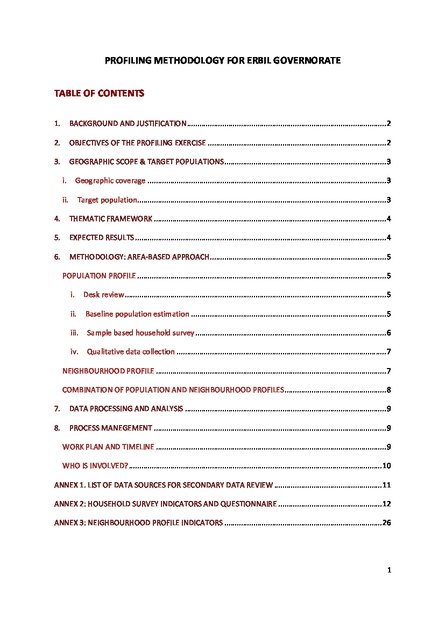
The Kurdistan Region of Iraq (KRI) is experiencing a complex displacement situation. In addition to people displaced due to older crises, KRI is hosting increasing numbers of refugees fleeing the Syrian crisis, as well as IDPs who have been leaving their homes in central and northern Iraq since December 2013. More than 60 per cent of the refugees in KRI and around 80 per cent of the IDPs in KRI live out of camps, primarily in urban settings.1 The largest concentration of out of camp displaced populations2 in KRI is within Erbil Governorate.
While a lot of information is available on IDPs and refugees residing in camps, less is known about those residing out of camps. Additionally, most of the existing information and responses are focusing on addressing the needs of either IDP or refugee populations, while the needs and vulnerabilities of the host communities, living along side these populations, do not receive as much attention and analysis. In order to consolidate existing information and to address the gaps in more in-depth analysis of the out of camp displacement situation in the Erbil Governorate, Erbil Refugee Council (ERC), the Joint Crisis Coordination Centre (JCC), Kurdistan Region Statistics Office (KRSO), IOM, UNFPA, UNHCR and UNOCHA have decided to undertake a profiling exercise.
The purpose of the profiling exercise is to inform long-term planning for comprehensive solutions to the displacement situation. Despite the continuing humanitarian crisis, comprehensive solutions are pertinent to the populations facing a protracted displacement situation. A collaborative profiling process, including a process of joint analysis and development of recommendations, will allow for the Government, humanitarian and development actors responding to the displacement situation to align their planning and advocacy with a comprehensive view of the situation.
